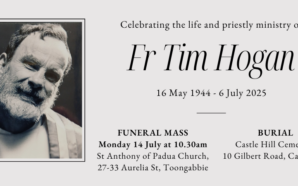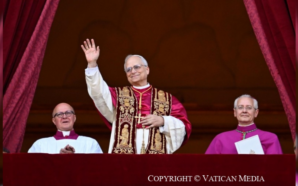LORD, I BELIEVE; HELP MY UNBELIEF! (MARK 9:24)
If faith is a relationship, it will have its ‘ups and downs’ – like all relationships that matter. We should not be surprised then that we all go through seasons of questions, doubts and aridity in our experience of believing.
For it is no small thing to believe! It would be nice to have the ‘certainty’ of some. But deep down we all know that dogmatists of all persuasions are fundamentally riddled with insecurity and rigidity. It is healthier simply to accept that in this life we usually dwell in the ‘Cloud of Unknowing’ (I highly recommend reading Dr Carmen Acevedo Butcher’s beautiful The Cloud of Unknowing: A New Translation). Doubts and questioning of God are a normal and essential part of the faith journey.
So, when we encounter dogmatic atheists, or when we go through periods of doubt ourselves, we should not seek ‘answers’ too quickly but ‘live the questions’, as the poet Rainer Maria Rilke once said.
A wonderful guide in this regard is Mgr Prof. Tomas Halik, who has produced one of the best and most beautiful responses to the so-called New Atheism, in his recent book, Patience with God (Doubleday, 2009). Halik worked as a psychotherapist under the communists in Czechoslovakia, while secretly being ordained as a Catholic priest and active in the underground Church. Since the fall of the communist regime, he has served as general secretary to the Czech Conference of Bishops and was an adviser to Vaclav Havel. He has lectured at many universities throughout the world and is currently university chaplain and professor of philosophy and sociology at Charles University, Prague.
His argument is that the real difference between faith and atheism is patience. Atheists are not wrong, only impatient. They want to resolve doubt instead of enduring it. Their experience of God’s absence is a truthful experience shared also by many believers. Faith is not a denial of all this: it is a patient endurance of the ambiguity of the world and the experience of God’s absence. Faith is patience with God.
Halik teaches that God requires us to persevere with our doubts, carry them in our hearts, and allow them to lead us to maturity. For Halik, patience is the main difference between faith and atheism.
“As a believer I am always a seeker, and there’s a fellowship between seekers. Doubt isn’t the enemy of faith but her sister. Unchecked doubt leads to militant secularism, but unchecked faith leads to religious fundamentalism. Like sisters, faith and doubt can also support each other.”
I understand why some Catholics would like to believe there is an ‘answer’ to everything. But that is not very good theology. St Thomas Aquinas insists that we actually know very little about God. Mystery should not frighten us but intrigue and enchant us.
Of course, we do need a ‘new apologetics’, as Archbishop Salvatore Fisichella, of the Pontifical Council for the New Evangelisation, has pointed out. But it must be an apologetics that is based on an understanding of the kindness of God. If its aim is to ‘counsel the doubtful’ it will stress that there is room in God’s family for those who doubt, even for those for whom the word ‘God’ cannot easily be deciphered.
There may be some in the Church who have a spirituality and faith where it is always ‘summertime’. They are blessed with endless enthusiasm and a feeling of the certainty of God’s presence that never eludes them.
Many of us, however, can identify with R.S. Thomas’s poem Via Negativa. Along with John of the Cross, we can sometimes experience God as “the empty silence within”. Hopefully, it makes us better able to ‘counsel the doubtful’ as they go through their own ‘dark nights of the soul’.
VIA NEGATIVA
Why no! I never thought other than
that God is that great absence
in our lives, the empty silence
within, the place where we go
seeking, not in hope to
arrive or find. He keeps the interstices
in our knowledge, the darkness
between stars. His are the echoes
we follow, the footprints he has just
left. We put our hands in
his side hoping to find
it warm. We look at people
and places as though he had looked
at them, too; but miss the reflection.
R.S. Thomas (1913–2000)
This article is part of a series of Lenten reflections entitled A Spirit of Mercy: Reflections on the Works of Mercy by Br Mark O’Connor FMS.
Br Mark O’Connor FMS is the Vicar for Communications in the Diocese of Parramatta.








